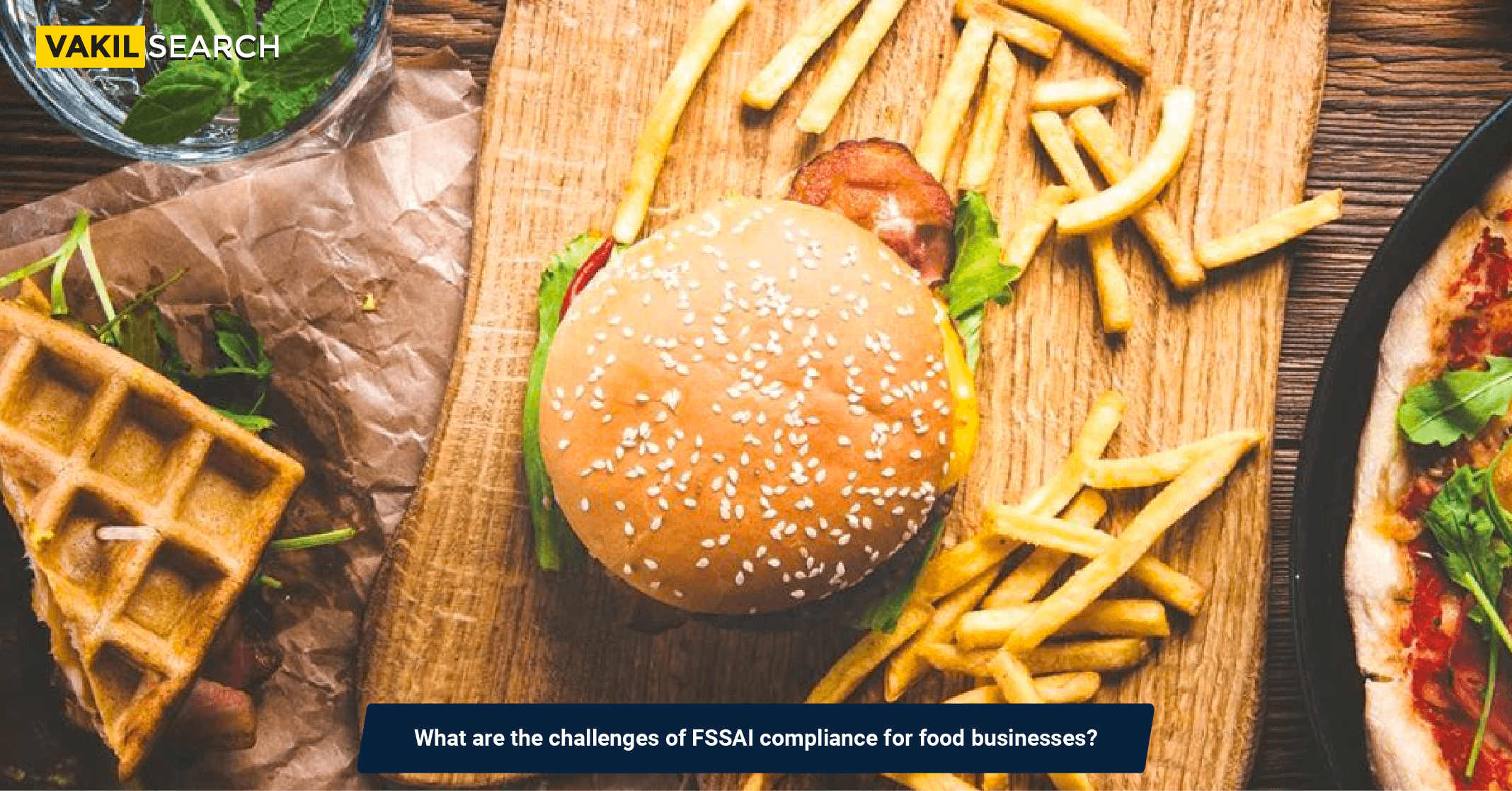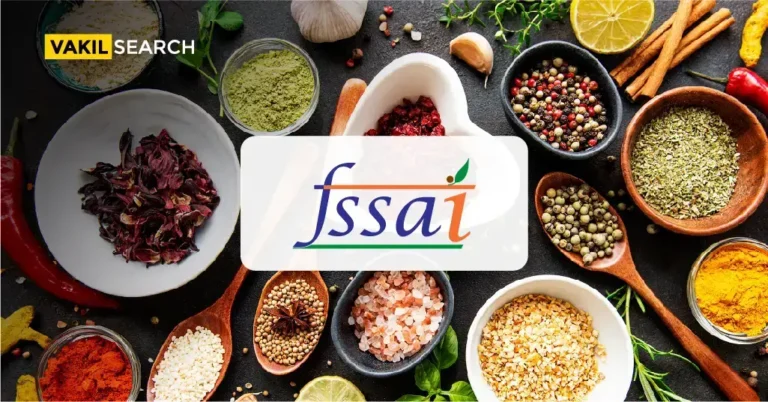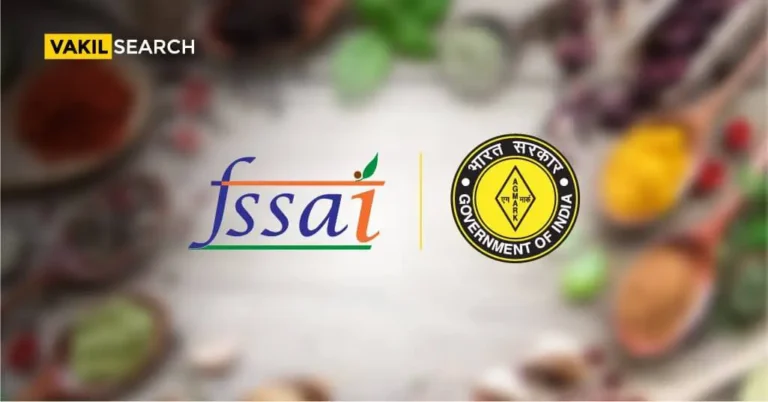Discover the intricate challenges food businesses encounter while striving for compliance with FSSAI regulations. Vakilsearch offers expert guidance and solutions.
The Food Safety and Standards Authority of India (FSSAI) plays a pivotal role in ensuring the safety and quality of food products consumed by the public. For food businesses in India, compliance with FSSAI regulations is not merely an option but a legal obligation. However, achieving and maintaining FSSAI compliance comes with its set of challenges. In this article, we will identify and elaborate on the common challenges of fssai compliance for food business when trying to adhere to FSSAI regulations.
Understanding the Complex Regulatory Landscape – FSSAI Compliance for Food Business
Navigating the regulatory landscape set forth by FSSAI can be overwhelming for food businesses. The FSSAI regulations encompass a wide array of requirements, ranging from licensing and registration to food safety standards and labelling. Understanding the intricate details of these regulations can be a daunting task for businesses, especially those that are new to the industry.
Obtaining the Right License or Registration
FSSAI has categorised food businesses into different types, each requiring a specific type of license or registration based on their scale and nature of operations. Determining the correct category and subsequently obtaining the appropriate license or registration can be challenging, leading to potential delays and non-compliance issues.
Ensuring Food Safety and Hygiene Standards
Compliance with food safety and hygiene standards is a core requirement for FSSAI. Maintaining these standards consistently in food preparation, storage, and distribution poses a significant challenge. Adhering to hygiene practices while handling food items is not only resource-intensive but also necessitates strict adherence from all employees, making it a management challenge.
Compliance with Labelling Regulations
FSSAI mandates detailed and accurate labelling on food products. This includes nutritional information, allergens, ingredients, and more. Achieving compliance with these labelling requirements is a challenge, especially for smaller food businesses that may lack the necessary resources for comprehensive labelling analysis and design.
Handling and Documentation of Raw Materials
Food businesses need to maintain meticulous records and documentation regarding the sourcing and usage of raw materials. Ensuring the quality and safety of raw materials and documenting their journey from procurement to production is a tedious task. It becomes even more challenging if the supply chain involves multiple vendors and stakeholders.
Adapting to Evolving Regulations – FSSAI Compliance for Food Business
The FSSAI regularly updates and revises its regulations to enhance food safety and quality standards. Staying updated and adapting to these evolving regulations is a continuous challenge for food businesses. It requires an efficient mechanism to monitor changes and incorporate them into business practices.
Implementing Good Manufacturing Practices (GMP)
Good Manufacturing Practices (GMP) are fundamental requirements for FSSAI compliance. Implementing and maintaining GMP across the production process necessitates significant effort, resources, and training. Small-scale businesses, in particular, often struggle to fully adopt and sustain GMP due to limited resources and expertise.
Staff Training and Awareness
Ensuring that all staff members are adequately trained and aware of FSSAI regulations and compliance requirements is a challenge. The turnover of employees and the need for continuous training make it difficult to maintain a consistently compliant workforce.
Dealing with Enforcement and Penalties – FSSAI Compliance for Food Business
Non-compliance with FSSAI regulations can lead to penalties, recalls, or even business closure. Food businesses face the challenge of dealing with the potential financial and reputational repercussions of non-compliance. The fear of enforcement actions acts as a constant reminder of the need for stringent compliance.
Costs Involved in Compliance
For small and medium-sized food businesses, the cost of ensuring FSSAI compliance can be substantial. From obtaining licenses to implementing safety measures and conducting regular audits, the financial burden can be overwhelming. This cost challenge often deters businesses from prioritising compliance.
Conclusion – FSSAI Compliance for Food Business
Adhering to FSSAI regulations is non-negotiable for any food business. However, the challenges associated with achieving and maintaining compliance can be substantial. From understanding the regulations to implementing them in day-to-day operations and managing associated costs, these challenges are multi-faceted. Overcoming these obstacles requires a concerted effort, investment in resources, and a strong commitment to food safety and quality, ensuring that the ultimate goal of consumer safety is met.
In navigating these intricate regulatory waters, Vakilsearch emerges as a valuable ally for food businesses. Vakilsearch provides expert legal guidance and support, assisting businesses in understanding and complying with FSSAI regulations. Our expertise aids in overcoming challenges efficiently, ensuring businesses achieve and sustain compliance, ultimately bolstering consumer safety and trust within the industry. Collaborating with Vakilsearch empowers food businesses to tackle FSSAI compliance with confidence and competence.










